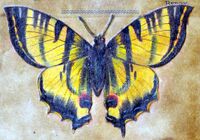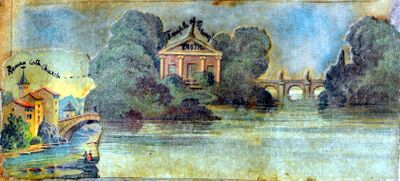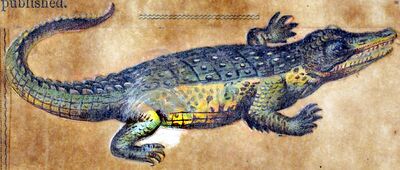HPB-SB-7-24: Difference between revisions
mNo edit summary |
mNo edit summary |
||
| Line 8: | Line 8: | ||
{{Style P-HPB SB. Title continued |The Evolution Theory Considered in its Relation to Theosophy|7-23}} | {{Style P-HPB SB. Title continued |The Evolution Theory Considered in its Relation to Theosophy|7-23}} | ||
... | {{Style P-No indent|brought forward. There has been for many months past a lively controversy carried on in an orthodox religious paper, the ''Christian World,'' in which one of the combatants maintains that “conditional immortality” is a distinct tenet of Christ’s doctrine. It is true he takes the view that it is conditioned by the acceptance or non-acceptance of Christ as our Saviour. Although I should find it difficult to believe that a difference of opinion as to the meaning of Christ’s life and mission, could constitute either a barrier or a passport to heaven, I am free to admit that there is some force in the other part of his argument.}} | ||
The following passages, taken together, are, I think, presumptive evidence that the doctrine of unconditional immortality is not taught in the New or Old Testaments. | |||
(1.) “For what is a man profited if he shall gain the whole world and lose his own soul?” (Matt. xvi. 26.) | |||
(2.) “Fear not them which kill the body, but are not able to kill the soul: but rather fear him which is able to ''destroy ''both soul and body in hell.” (Matt. x. 28.) | |||
(3.) ‘‘If by any means I may attain unto the resurrection of the dead.” (Philip, iii. 11.) | |||
(4.) “The soul that sinneth it shall die.” (Ezek. xviii. 20.) | |||
(5.) “Let him know that he which converteth the sinner from the error of his way shall save a soul from death, and shall hide a multitude of sins.” | |||
(6.) “And this is the record, that God hath given to us eternal life and this life is in His Son. He that hath the Son hath life, and he that hath not the Son of God hath not life.” | |||
Looking at the whole of the Apostolic teachings, as well as those of Christ Himself, in a wider view than that which usually obtains, I see much to favour the belief that “salvation” meant saving the soul ''alive,'' and not saving it from eternal torments. | |||
I submit, in conclusion, (1) that the theory of evolution, if true at all, is true of the soul primarily, and only secondarily of the body; | |||
(2) that it is quite compatible with natural and revealed religion, and with the facts of psychology; (3) that it should modify some articles of the Spiritualist creed, especially those which concern the soul’s origin. | |||
<center>HUMAN LIFE.</center> | |||
{{Style P-Poem|poem=Between two worlds life hovers like a star, | |||
’Twixt night and mom, upon the horizon’s verge; | |||
How little do we know that which we are! | |||
How less what we may be! The eternal surge | |||
Of time and tide rolls on, and bears afar | |||
Our bubbles; as the old bursts, new emerge, | |||
Lashed from the foam of ages, while the graves | |||
Of empires heave but like some passing waves. | |||
{{Style P-Signature in capitals|Byron.}}}} | |||
Revision as of 13:11, 6 March 2024
< The Evolution Theory Considered in its Relation to Theosophy (continued from page 7-23) >
brought forward. There has been for many months past a lively controversy carried on in an orthodox religious paper, the Christian World, in which one of the combatants maintains that “conditional immortality” is a distinct tenet of Christ’s doctrine. It is true he takes the view that it is conditioned by the acceptance or non-acceptance of Christ as our Saviour. Although I should find it difficult to believe that a difference of opinion as to the meaning of Christ’s life and mission, could constitute either a barrier or a passport to heaven, I am free to admit that there is some force in the other part of his argument.
The following passages, taken together, are, I think, presumptive evidence that the doctrine of unconditional immortality is not taught in the New or Old Testaments.
(1.) “For what is a man profited if he shall gain the whole world and lose his own soul?” (Matt. xvi. 26.)
(2.) “Fear not them which kill the body, but are not able to kill the soul: but rather fear him which is able to destroy both soul and body in hell.” (Matt. x. 28.)
(3.) ‘‘If by any means I may attain unto the resurrection of the dead.” (Philip, iii. 11.)
(4.) “The soul that sinneth it shall die.” (Ezek. xviii. 20.)
(5.) “Let him know that he which converteth the sinner from the error of his way shall save a soul from death, and shall hide a multitude of sins.”
(6.) “And this is the record, that God hath given to us eternal life and this life is in His Son. He that hath the Son hath life, and he that hath not the Son of God hath not life.”
Looking at the whole of the Apostolic teachings, as well as those of Christ Himself, in a wider view than that which usually obtains, I see much to favour the belief that “salvation” meant saving the soul alive, and not saving it from eternal torments.
I submit, in conclusion, (1) that the theory of evolution, if true at all, is true of the soul primarily, and only secondarily of the body;
(2) that it is quite compatible with natural and revealed religion, and with the facts of psychology; (3) that it should modify some articles of the Spiritualist creed, especially those which concern the soul’s origin.
Between two worlds life hovers like a star, Byron.
|

"Isis Unveiled" and the Todas
...

<Untitled> (Captain Burton's work entitled Goa)
...

<Untitled> (Allow me to say...)
...
<... continues on page 7-25 >
Editor's notes
- ↑ image by unknown author. colored butterfly
- ↑ "Isis Unveiled" and the Todas by Baikie, R. (signed as R. Baikie, M.D., late H.E.I.C.S.), Spiritualist, The, March 22, 1878
- ↑ image by unknown author. House in trees on the bank. Note above house: "Temple of Theosophy"; note on roof: "TRUTH"; note above houses on the left: "Roman Cath. Church".
- ↑ Captain Burton's work entitled Goa by Blake, C. Carter, Spiritualist, The, March 22, 1878
- ↑ image by unknown author. crocodile
- ↑ Allow me to say... by unknown author (signed as H. M.), Spiritualist, The, March 22, 1878

